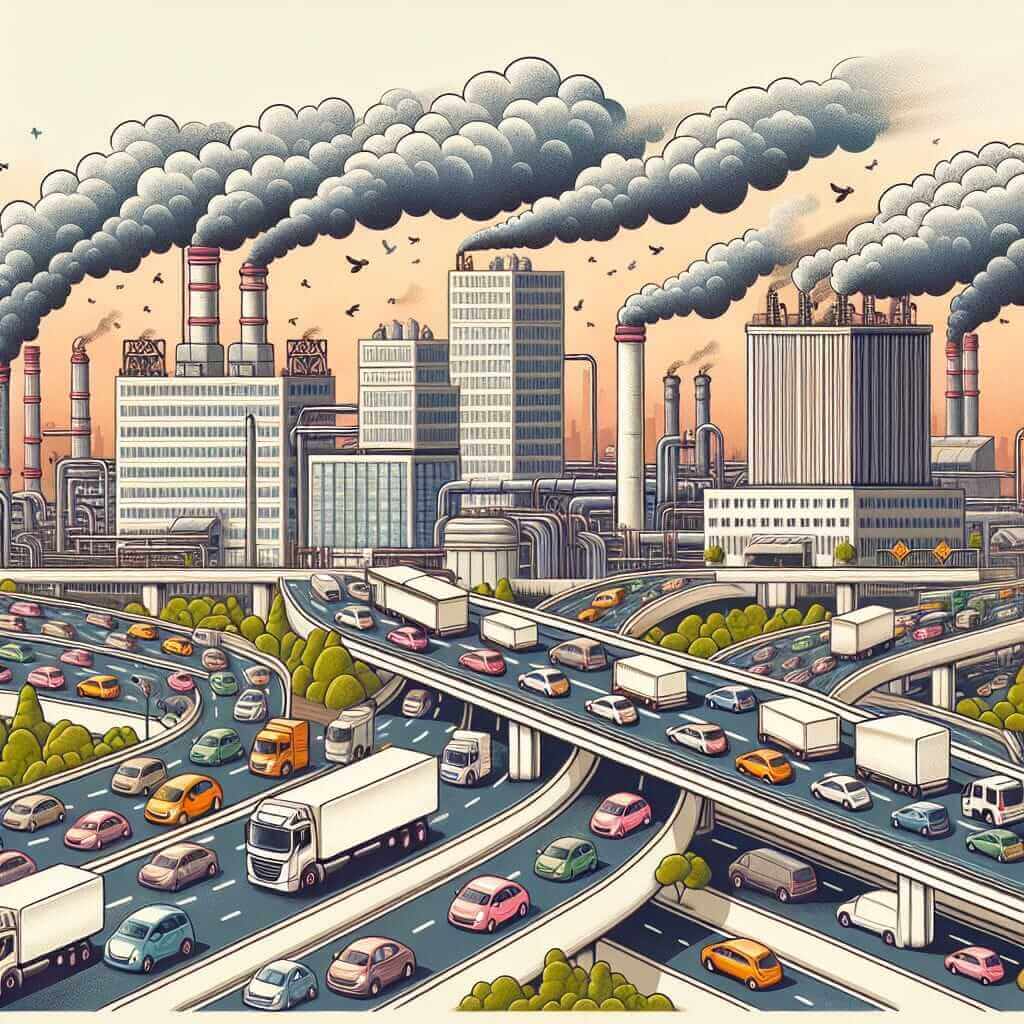Climate change is increasingly becoming a significant topic of concern globally. As the earth’s climate continues to evolve, its rapid changes have profound impacts, not only on the environment but also on public health. In this article, we will explore the intricate connections between climate change and public health, providing an insightful reading material that mimics the structure and complexity of an IELTS Reading test. The relevance and recurrence of this topic in recent years make it a possible contender for future IELTS Reading sections.
Reading Passage
Climate Change and Public Health Impacts
Climate change poses one of the most critical challenges to global health today. Several studies have identified various ways through which climate change impacts human health, including the prevalence of diseases, mental health issues, and food security problems.
Heatwaves: One of the direct effects of climate change is the increase in the frequency and intensity of heatwaves. Prolonged exposure to extreme heat can lead to heatstroke, dehydration, and exacerbation of cardiovascular and respiratory diseases, particularly in vulnerable populations such as the elderly.
Vector-borne Diseases: Changes in temperature and precipitation patterns can alter the distribution of disease vectors like mosquitoes and ticks. This shift can lead to the spread of diseases such as malaria, dengue fever, and Lyme disease into new regions, posing significant public health challenges.

Air Quality: Increasing temperatures can worsen air quality by promoting the formation of ground-level ozone and increasing the frequency of wildfires. Poor air quality has been linked to respiratory problems, such as asthma and chronic obstructive pulmonary disease (COPD).
Mental Health: The adverse impacts of climate change, such as natural disasters and displacement, contribute to increased levels of stress, anxiety, and depression. Communities facing severe climate events are often at a higher risk of psychological distress and mental health disorders.
Food Security: Climate change affects agricultural productivity due to altered precipitation patterns and increased incidence of extreme weather events. Such changes can lead to food scarcity, malnutrition, and heightened food prices, thus affecting the nutritional status and health of populations, especially in developing countries.
Questions
Question Set 1: Multiple Choice
-
According to the passage, what is one of the direct health effects of climate change?
A. Decreased allergy cases
B. Increased heatwaves
C. Reduced frequency of respiratory diseases
D. Lower stress levels -
Which disease is mentioned in the text as being spread by mosquitoes due to climate change?
A. Influenza
B. Hepatitis
C. Malaria
D. Chickenpox
Question Set 2: True/False/Not Given
-
Heatwaves primarily affect young, healthy individuals. (True/False/Not Given)
-
Poor air quality as a result of climate change can trigger asthma. (True/False/Not Given)
Question Set 3: Matching Information
-
Match the following impacts with the corresponding sentences from the passage:
- (i) Effects on mental health
- (ii) Spread of disease vectors
A. “Changes in temperature and precipitation patterns can alter the distribution of disease vectors like mosquitoes and ticks.”
B. “Natural disasters and displacement contribute to increased levels of stress, anxiety, and depression.”
Question Set 4: Sentence Completion
- Climate change can lead to infectious diseases spreading into _____.
Question Set 5: Summary Completion
- Fill in the blanks with NO MORE THAN THREE WORDS from the passage:
Climate change impacts food security by altering precipitation patterns, causing extreme weather events, and potentially leading to _____ in food prices.
Answers
Answer Key
- B. Increased heatwaves
- C. Malaria
- False
- True
- (i) B, (ii) A
- new regions
- heightened
Explanation
- The correct answer is (B) because the passage states that one direct effect of climate change is the increase in the frequency and intensity of heatwaves.
- The correct answer is (C), as the passage mentions malaria as a disease spread by mosquitoes, which is worsened by changes in climate.
- False; the passage specifies that heatwaves particularly affect vulnerable populations such as the elderly, not primarily young and healthy individuals.
- True; the passage notes that poor air quality resulting from climate change exacerbates respiratory conditions like asthma.
- For (i), B aligns with mental health impacts due to climate events; for (ii), A aligns with the spread of disease vectors.
- “New regions” fits as the passage discusses the spread of illnesses to new areas due to changed vector distributions.
- “Heightened” correctly completes the summary noting the consequence on food prices due to changing climate conditions.
Common Mistakes
- Misinterpreting Data: Readers might confuse which health impacts are direct vs. indirect consequences of climate change.
- Matching Issues: Students often find it challenging to match headings and features correctly due to similar but slightly different statements.
- Time Management: Not managing time well can result in incomplete answers or missed questions.
Vocabulary
- Prevalence (noun): /ˈprevələns/ – the condition of being widespread.
- Dehydration (noun): /ˌdiː.haɪˈdreɪ.ʃən/ – a dangerous reduction in the amount of water in the body.
- Vector-borne (adj): /ˈvɛktər-bɔːrn/ – referring to diseases transmitted by an organism like mosquitoes or ticks.
- Malnutrition (noun): /ˌmælnjuːˈtrɪʃən/ – poor nutrition caused by a lack of food or an unbalanced diet.
Grammar
Complex Sentences: The passage uses complex sentences to convey detailed information, vital for advanced understanding.
Example: “Climate change affects agricultural productivity due to altered precipitation patterns and increased incidence of extreme weather events.”
- Complex sentence structure: Main clause + subordinates.
- Compound modifiers: “altered precipitation patterns” and “increased incidence” connect ideas efficiently.
Tips for High Reading Scores
- Practice Regularly: Consistency in practicing reading passages similar to IELTS standards can increase reading speed and comprehension.
- Enhance Vocabulary: Building a strong vocabulary helps in understanding and answering questions accurately.
- Analyze Mistakes: Reviewing wrong answers and understanding errors can aid in better performance in future tests.
- Simulate Exam Conditions: Practice under timed conditions to enhance time management skills for the actual exam.
By employing these strategies and focusing on the discussed content areas, candidates can significantly improve their skills for higher scores in the IELTS Reading section.